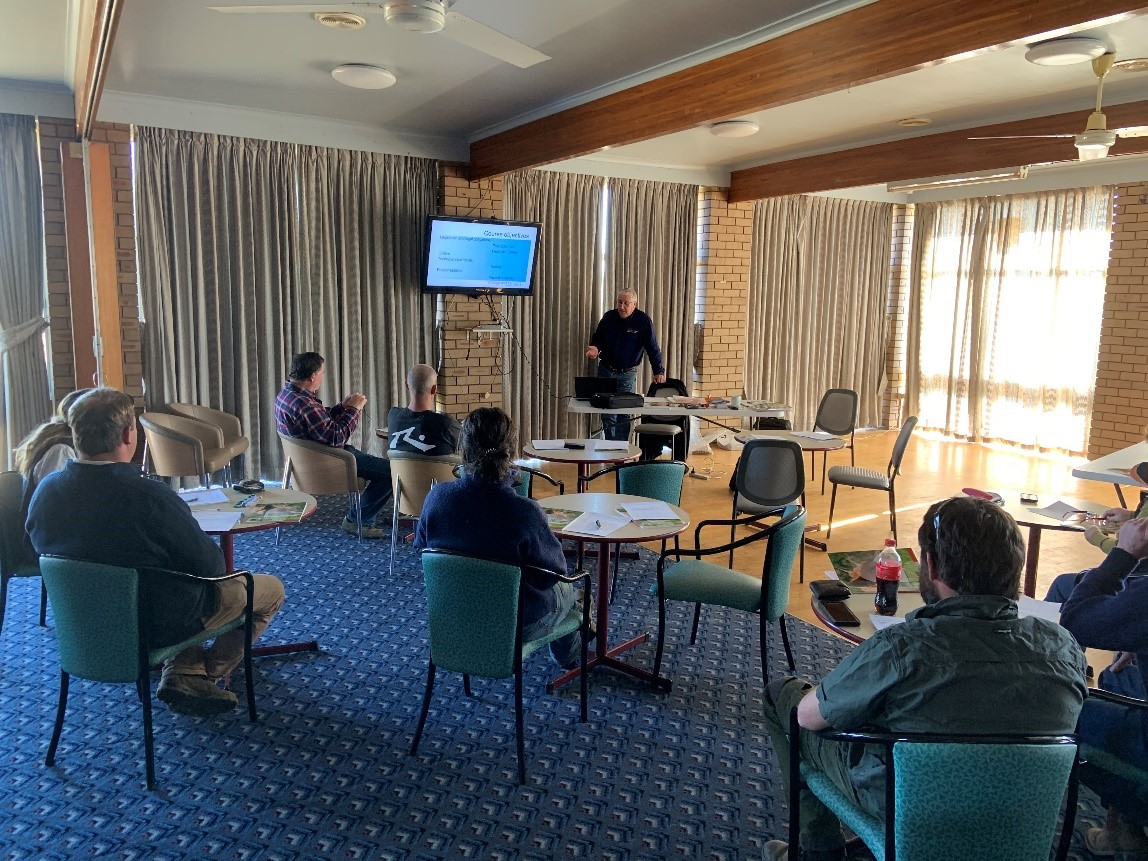
Biosecurity staff from South East Local Land Services, with support from Australian Wool Innovation Ltd, recently conducted vertebrate pest induction training sessions in Delegate and Nimmitabel.
The courses provide the instruction and certification that allows land managers to be issued with baits to control vertebrate pests, including rabbits, foxes and wild dogs, on their property.
“The courses cover the safe use of the materials, the legislation associated with them, the requirements around record keeping and community notification and the risk assessment approach for using baits.” said South East Local Land Services’ Wild Dog Coordinator Thomas Ross.
“Maintaining accreditation is an essential step for land managers in complying with their biosecurity duties,
“Autumn baiting programs have recently been completed and planning has already commenced for spring baiting.”
In response to the challenges posed by COVID-19 the NSW Environmental Protection Authority has extended Vertebrate Pesticide Accreditations due to expire, and those that had expired since 1 March 2020, out to 20 October 2020. However, at this point in time, Local Land Services is able to offer training to land managers for the full five year accreditation.
“Interactions with wild dogs are an ongoing issue in much of the South East, we have 13 wild dog management plans in place to help deal with this issue.” Thomas said.
“One of the keys to the success of these plans is the involvement of local land managers, the more land managers we have involved in our management plans, the greater the impact we will have.
“Baiting is just one of the tools in the management kit, community participation is also needed for effective surveillance and monitoring to inform both the broader strategic approach and our reactive measures including trapping and ground shooting.”
Those interested in future training courses or getting involved with their local Feral Fighters or wild dog management group should contact their nearest Local Land Services office.








